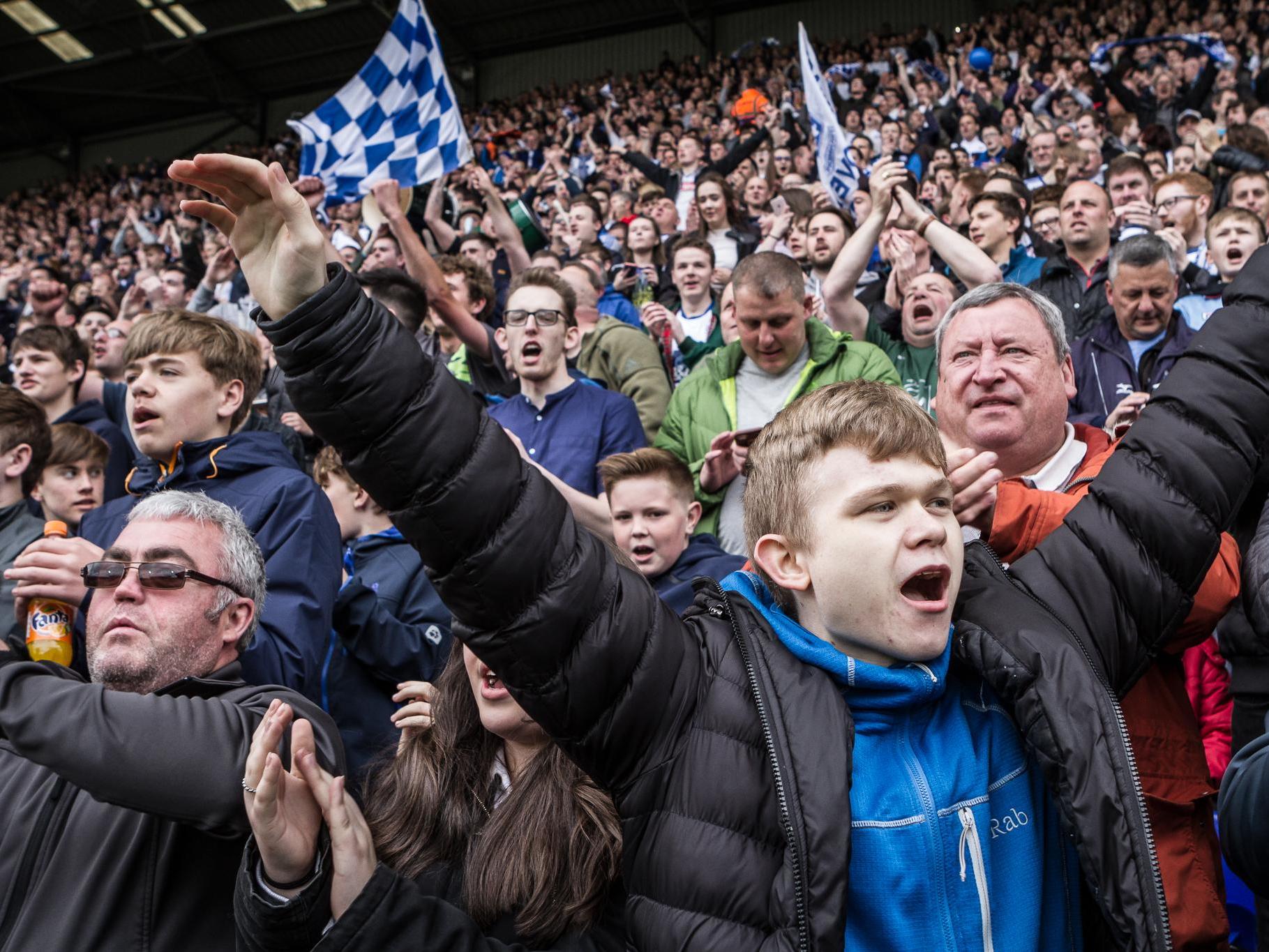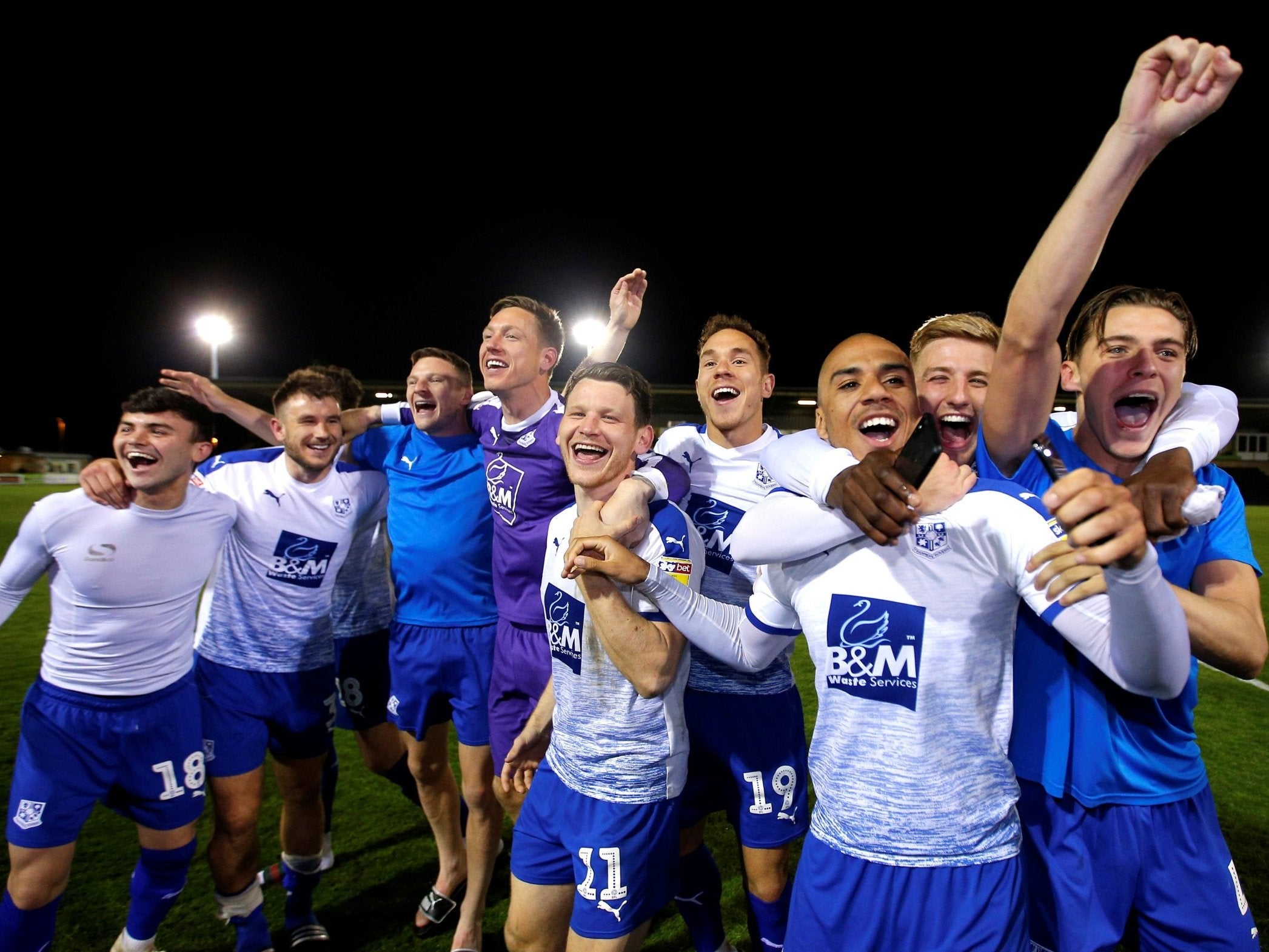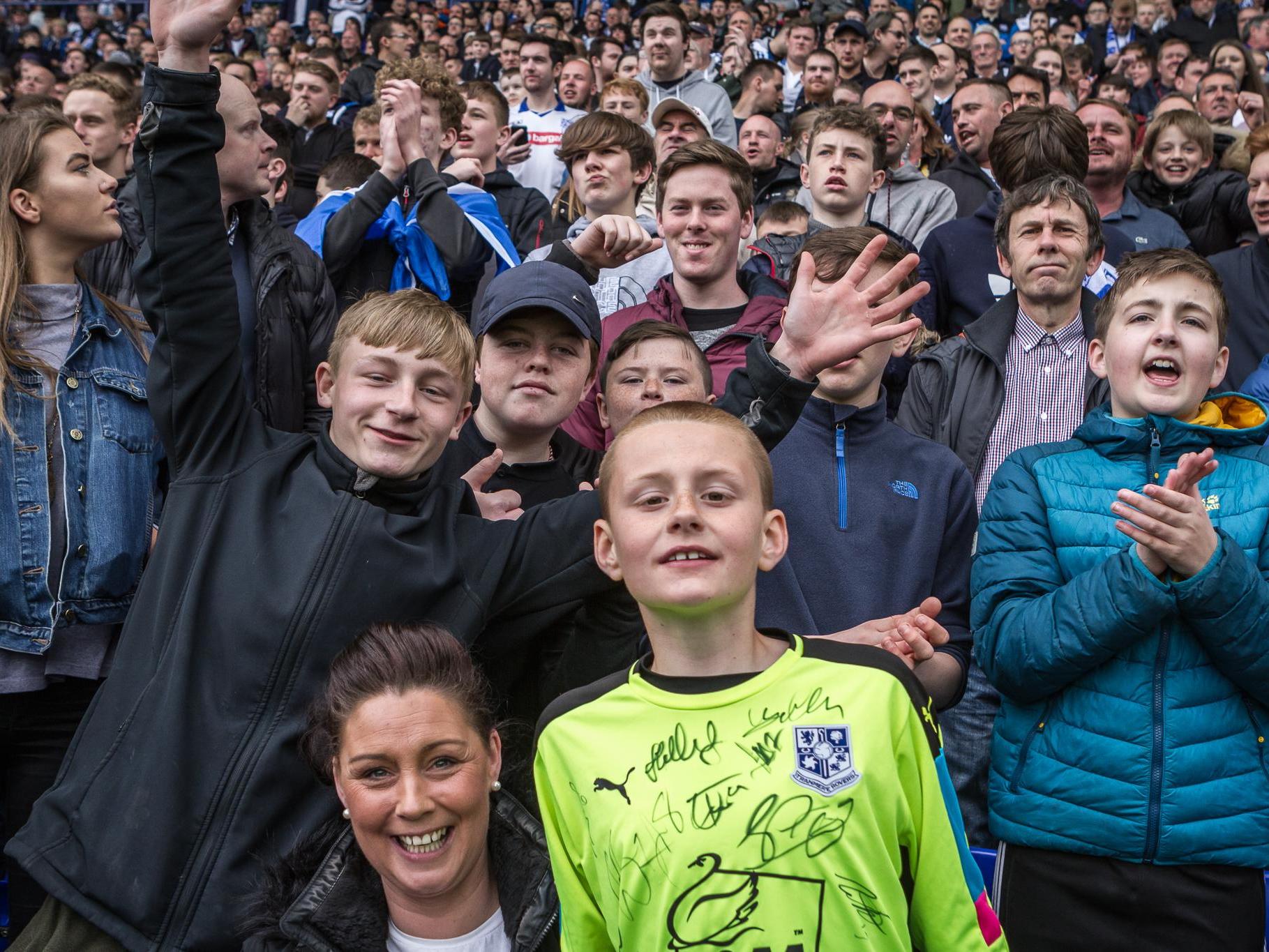The resurgence of Tranmere Rovers and how opportunities have united a community
On the brink of promotion to League One, the Whites have used their power to provide hope for children and former prisoners

Your support helps us to tell the story
From reproductive rights to climate change to Big Tech, The Independent is on the ground when the story is developing. Whether it's investigating the financials of Elon Musk's pro-Trump PAC or producing our latest documentary, 'The A Word', which shines a light on the American women fighting for reproductive rights, we know how important it is to parse out the facts from the messaging.
At such a critical moment in US history, we need reporters on the ground. Your donation allows us to keep sending journalists to speak to both sides of the story.
The Independent is trusted by Americans across the entire political spectrum. And unlike many other quality news outlets, we choose not to lock Americans out of our reporting and analysis with paywalls. We believe quality journalism should be available to everyone, paid for by those who can afford it.
Your support makes all the difference.Monday morning at Prenton Park and the phone in the club shop is ringing every couple of minutes. Most of the calls are about tickets for Saturday when Tranmere Rovers play Newport County, with the winner earning promotion to League One. It will be Tranmere’s third trip to Wembley in as many seasons – this following relegation into non league football in 2015.
Upstairs in a hospitality suite, Tranmere’s owner and chairman is scribbling on a notepad the detail behind the club’s recovery, revealing too what his plans are for the future. Mark Palios had once led the Football Association but he was in semi-retirement and living in France when he decided to return to Tranmere mainly out of a sense of civic responsibility having played there for thirteen years in two spells across three decades spanning the 1960s and 1980s.
His wife Nicola became the co-owner and vice-chairman. The club had just tumbled out of League One but it got a lot worse before it became better. The sort of downward momentum that has almost flattened other clubs of similarly considerable size. Though the problems at Stockport County have eased, Palios was aware of how far Tranmere could fall without clear thinking and decisive leadership.
Palios has since fought against a wider economic tide, proving what can be done when the vision and determination is there. He does not believe in austerity. “You never cost cut your way out of a difficult situation,” he said firmly, looking up from his notepad. “You have to look at how you better use your assets and extract all of the potential out of them.”
This meant trying to turn Tranmere around while changing its entire business model at the same time. He saw the recovery in four stages but initially he needed to create some breathing space. Tranmere’s balance sheet reflected a £1million a year loss. This was 12 months before dropping into non league which resulted in additional losses of £3.5million.
He arrived in August which meant a manager had already been appointed and a squad assembled. It also meant he could not under carry the refurbishments he thought were necessary to bring the investment to the ground that would generate revenues until the following summer, by which time Tranmere were relegated again. He wanted people to see and be able to feel the difference in the hospitality lounges, to give them confidence in Tranmere’s credibility. “Nobody is going to invest in a business that looks as though its ripe for administration,” he says. “You can’t rise again unless you convince people the club isn’t moribund with nothing to offer.”
Breathing space gave him the time to extract what he terms “organic potential.” This stretched from the rooms inside Prenton Park’s main stand to a deal which saw the sale of the training ground, which wiped out the club’s debt. A new more cost-effective training facility was built which allowed Tranmere to make profit instead where there was once only cost. It is now the base for Tranmere’s college, the club’s first team train there as well as Liverpool Women, while the installation of 3G pitches will soon bring daily income.
Tranmere, he recognised, was a brand which had the potential to offer opportunities that other business might not, reminding the local community that the club was still alive and standing for something. The Tranmere Sports College, indeed, has helped provide alternative provision for children who have been unable to fit into conventional schooling and Palios took great pride in the attendance records which for the past fortnight have been at 100 per-cent.
He talks about “closing the circle” and this relates to providing work for former prisoners who are unable to get jobs despite qualifications. Research told Palios that more than 80-per-cent re-offend and this costs the taxpayer £37,000 a year per prisoner. “If potential employers see someone has worked for Tranmere maybe they’ll be more likely to give that person another chance. The whole idea is to get people into work rather than keep them out of it. That’s good for no one.”
Tranmere now drives football tourism, selling the north west to China, the US and Indonesia by providing access that was not there before as well as experience for young coaches and players. He wants to set up an official travel company as part of the next phase of development which would mean Tranmere had business models in education, community and internationally, each of them operating independently from the club without relying on results each Saturday. “They will live in the club and constantly contribute to the football budget – it’s what I’ve been trying to do since the day I came in,” he explained. Too many lower league clubs had adopted what he called “casino models” which relied on decent managers who ultimately move on and cash windfalls from cup competitions, using the money generated until it runs out. Then there was the patronage model, where a wealthy benefactor bankrolls everything. He wants Tranmere to be different and self-sustainable which he qualified as having a top third budget while breaking even

Ideally, he’d like to have 25 per-cent of Tranmere owned by a supporters’ vehicle. Ideally, he’d also like Wirral council to own 25 per-cent. “The remaining percentage would be for whoever leads the club but the council would always have a deciding say in that, which therefore protects its investment. This would improve the club’s security and a community asset from rogue owners.”
Palios is a man of ideas and action. He has considered moving Prenton Park to the Wirral docklands where a new stadium would help regenerate an area that needs it, bringing hotels that could service the tourism industry in Liverpool and potentially drive house prices. He also thinks Tranmere could thrive as a development club that leans on the resources of Premier League giants close-by, using their players in League One – or the Championship if they ever get there – in a way they were unable to as a non league club where, “The kid wouldn’t really want to come. His agent and his family wouldn’t want him to come. His mates would prefer it if he didn’t as well. It was very difficult to change the mind-set. The aim in non league was to get out. League Two it’s a bit easier but in League One, that’s where you start to really get a more consistent pattern of football. If you’re not getting regular first team football at 18 or 19 you can stagnate. We – along with other clubs if we play it right – can help enrich the game.”
He had been an accountant at PricewaterhouseCoopers before his time at the FA and he believes good accountancy and governance practices can help improve the condition of English football.
“Clearly there is something wrong with the fit and proper persons test, it is not actually fit for purpose,” he said. “You’re seeing people who are not the right people taking over clubs. The tools they use to try and control it need a complete overhaul. It’s probably because there’s not enough resources spent on getting the right quality of accountancy input into looking at clubs and then the potential buyer. It’s very much a light touch to my mind and a lot more can be done.”
The job of football administrators, he thinks, is to protect competition and re-invent it every year. “If you protect the pyramid, you protect the future and the past of English football as well as the development of English players. Football is a business but emotional attachments make it different. The whole point of business in the capitalist system is to kill off other business but the attraction of football and sport is based on maintaining a healthy competitive landscape. Nobody wants a monopoly.”

In Tranmere’s first year in non league, relegation was swiftly followed by a cancer diagnosis and this sharpened Palios’ determination to get the club moving in the right direction again. There will be 15,000 supporters at Wembley on Saturday following a team led by manager Micky Mellon, a former Tranmere player. Tranmere, indeed, are the only club in the football league managed and owned by former players. Beneath them on the football staff are other former players like Mike Jackson, Shaun Garnett, Andy Parkinson and Alan Morgan. The goalkeeping coach before he left was Eric Nixon. “There’s a cadre of people who get the club and that counts for something.” Palios said. “It wasn’t the reason I appointed Mickey because I think he’s an excellent manager but it was a factor.”
He thought back about their National League playoff win over Borehamwood around this time last year when his phone began to ring past 1am. He was asleep and it was the chair of the official supporters’ club who had travelled back to Wirral by coach. He was 20 minutes away from home and supporters were spilling out of the bar at Prenton Park. The access to him says a lot about the way things are at Tranmere because it was arranged for the latecomers to get in. This allowed players, management and fans to mark the occasion together. “The celebrations lasted for nearly a week,” Palios grinned.
Join our commenting forum
Join thought-provoking conversations, follow other Independent readers and see their replies
Comments